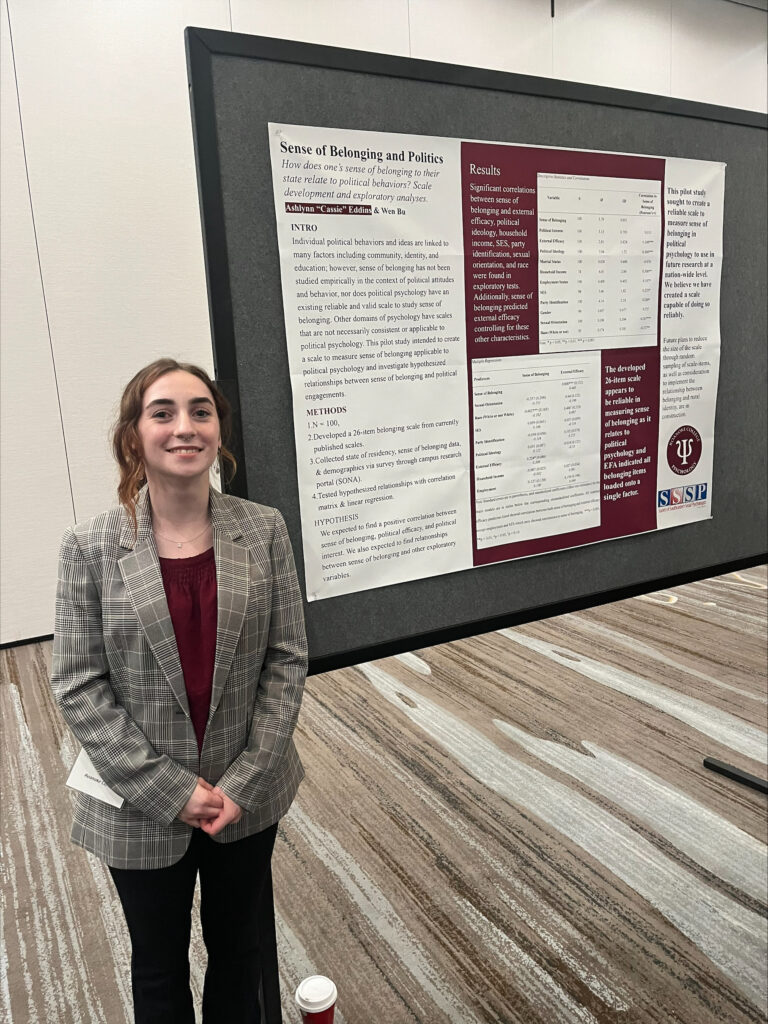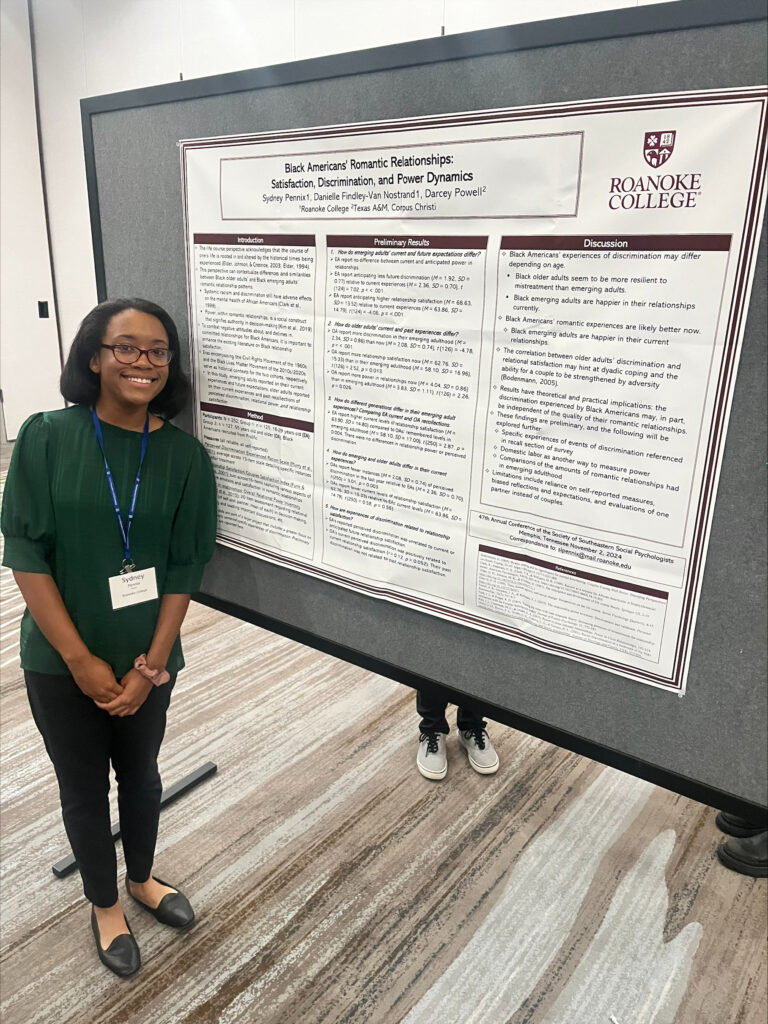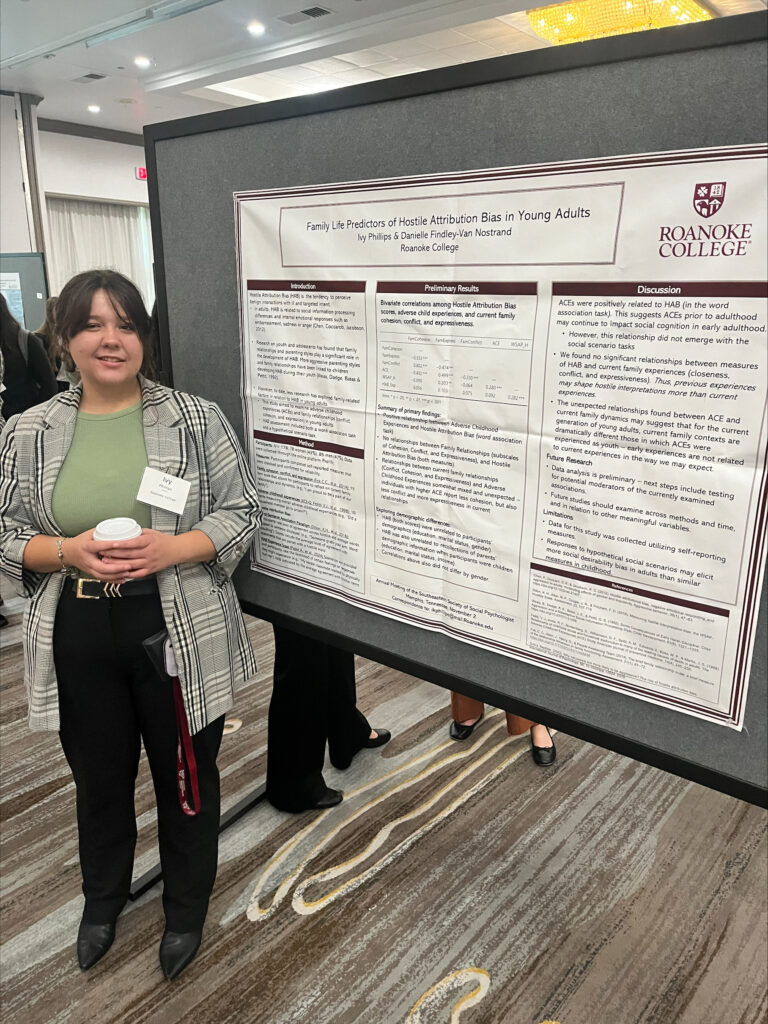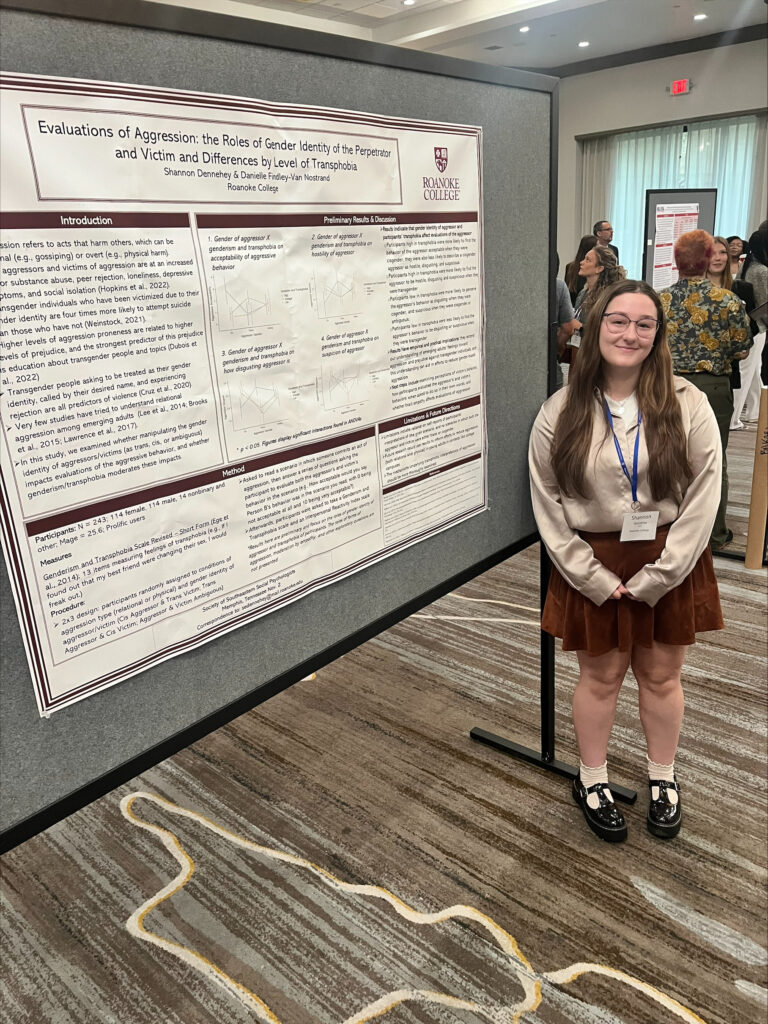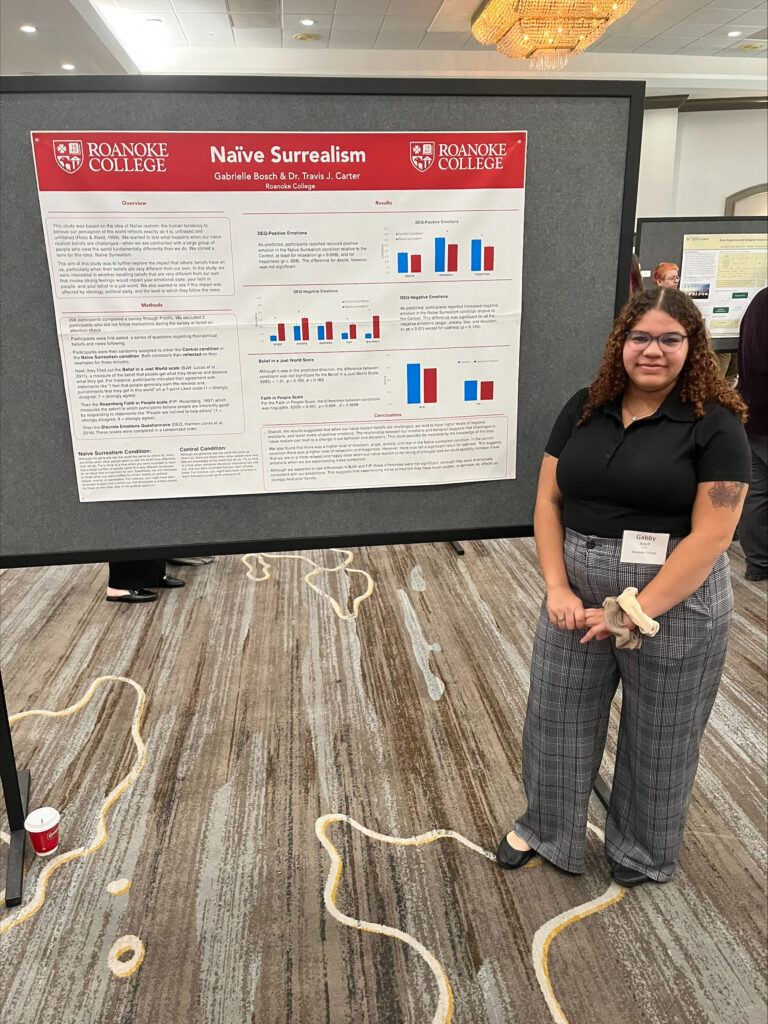This past Tuesday, the Roanoke College Psychology Association (RCPA) hosted an engaging virtual alumni panel titled “What To Do With A Bachelor’s Degree in Psychology.” The event featured three recent alumni who are now thriving in master’s programs, offering invaluable advice and insights to students navigating their own academic and professional paths. Here’s a closer look at the panelists:
Meet the Panelists

Kristi Rolf
After earning her psychology degree, Kristi took a gap year to figure out her next steps. She worked at the University of Virginia (UVA) in career counseling and later enrolled in UVA’s Master’s in Higher Education program. Her journey highlighted the benefits of gaining work experience before pursuing further education, including access to employee benefits and financial stability.

Raegan Middelthon
Raegan chose Virginia Tech for its master’s track in counseling, which offered both clinical and school counseling experiences. Her personal statement was a key component of her successful application, and her diverse background in research and applied behavior analysis (ABA) gave her a strong foundation.

Eliza Bain
Eliza, now a master’s student at Radford University, emphasized the importance of utilizing research opportunities during undergrad. Her distinction project at Roanoke gave her the skills needed to excel in grad school. She credits her neuroscience concentration and minor in French with helping her stand out during the application process.
Q&A Insights from the Panelists
The alumni shared their perspectives on navigating grad school, preparing applications, and getting the most out of undergraduate studies. Here are the highlights:
Feeling Prepared for Grad School
- Raegan: Roanoke’s rigorous coursework and research focus prepared her well for the demands of grad school. Writing-intensive courses like Quantitative and Qualitative Methods were particularly helpful.
- Eliza: Neuroscience seminar capstone boosted her ability to read and analyze literature, troubleshoot methods, and speak publicly.
- Kristi: Found developmental and social psychology classes especially relevant, as well as hands-on research experiences.
The Importance of Research
- Eliza: Quality matters more than quantity—be ready to explain how your experiences shape your interests and goals.
- Kristi: Psych Seminar and Quantitative Methods are great introductions to research, even without extracurricular projects.
- Raegan: Research is incredibly helpful in efforts to develop a strong graduate school application. Additionally, balancing research with internships provides a well-rounded skill set.
Crafting a Personal Statement
- Raegan: Start with a broad draft and refine it. Bragging about achievements is great—just don’t forget to connect them to the program you’re applying to.
- Kristi: Share turning points in your journey and focus on future aspirations. Always proofread!
- Eliza: Seek feedback from diverse perspectives—she even had a French professor review hers!
Advice on Diverse Experiences
- Eliza: Wishes she had explored more areas beyond neuroscience to diversify her perspective.
- Kristi: Encourages openness to career paths outside what you may currently envision for yourself.
- Raegan: Stressed the importance of self-care to avoid burnout.
Balancing Experiences in Undergrad
- Eliza: Focus on the depth and relevance of your experiences, not just the number.
- Raegan: It’s okay if someone has “more” experience—prioritize what works for you.
- Kristi: Use experiences to learn what you do not want to do, as much as what you do.
Key Takeaways for Psychology Majors
- Explore broadly: Seek opportunities across multiple fields to discover what resonates with you.
- Leverage your network: Professors, peers, and campus resources (like the Writing Center) can provide critical support for applications.
- Start early: Begin researching programs and drafting application materials well in advance.
- Prioritize mental health: Balance academics with self-care to maintain well-being.
RCPA extends its gratitude to Kristi, Raegan, and Eliza for sharing their stories and insights. Their diverse experiences demonstrate the many pathways a psychology degree can offer. Whether you’re planning to pursue grad school or entering the workforce, their advice highlights the importance of staying curious, prepared, and open to new possibilities. If you were not able to attend the panel, we hope this summary provides you with the information and confidence you need as you continue your undergraduate studies within the psychology department.
For more information on graduate school and careers in psychology, visit the psychology department website: https://www.roanoke.edu/inside/psychology/graduate_school_and_careers
Get Connected!
Blog: https://psych.pages.roanoke.edu/
Facebook: https://www.facebook.com/rcpsychology
Linked In: https://www.linkedin.com/groups/RC-Psychology-8140491/about
Website: http://www.roanoke.edu/inside/a-z_index/psychology
Instagram: rcpsychology

